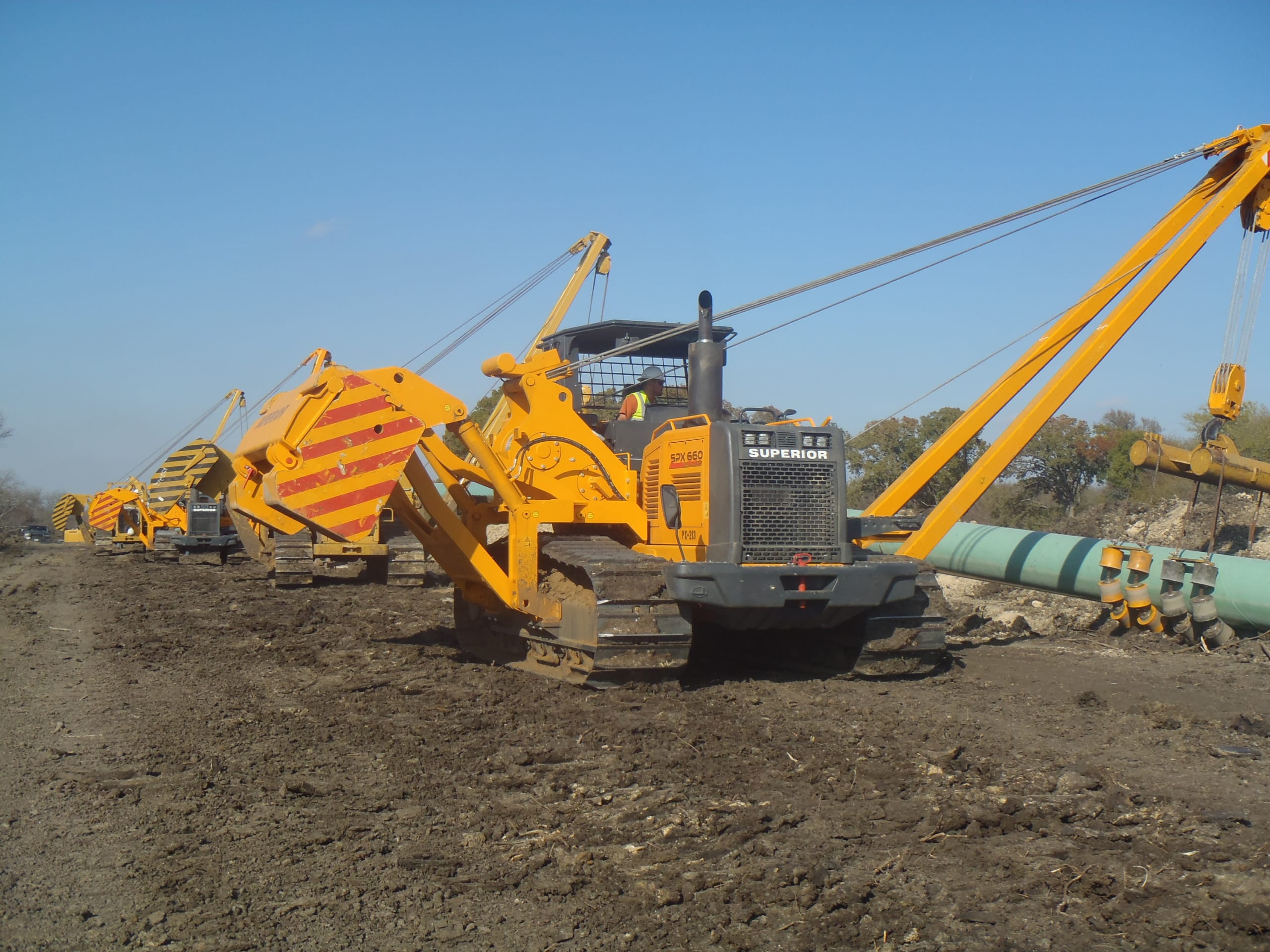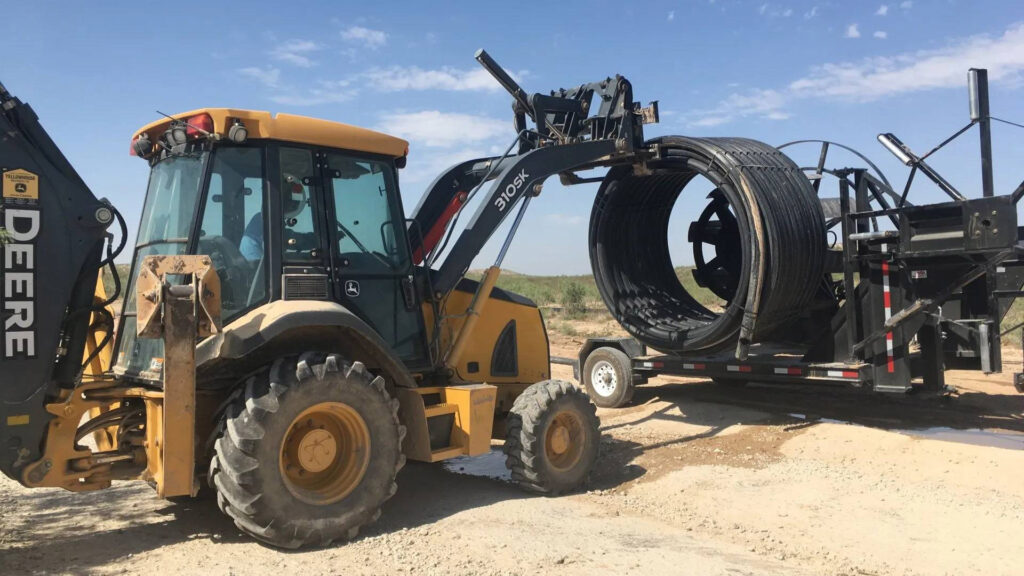Superior Rentals Contact: support and service options
Wiki Article
A Comprehensive Overview to the Numerous Sorts Of Oil Field Equipment and Pipeline Equipment Available
The oil and gas sector relies heavily on customized equipment for effective extraction and transport. Various sorts of equipment, from piercing rigs to tank, play important functions in this intricate process. Each tool serves distinct functions that add to general operational success. Comprehending these components is vital for any individual associated with the market. As the industry develops, so as well do the technologies that sustain it. What advancements are on the horizon?
Drilling Rigs: The Foundation of Oil Expedition
Drilling rigs act as the crucial equipment in the domain name of oil exploration, enabling firms to gain access to hydrocarbon books buried deep beneath the Earth's surface. These rigs are available in different kinds, including land rigs, offshore rigs, and mobile devices, each created to run in details settings. Furnished with innovative innovation, drilling rigs can pass through geological developments with accuracy, making certain efficient resource removal. The architectural honesty and functional capabilities of these rigs are critical, as they have to stand up to extreme problems and significant stress. Additionally, the selection of an exploration rig influences the overall task cost and timeline, making it an essential factor to consider for oil firms seeking to optimize their exploration initiatives and make the most of efficiency in their procedures.Pumps: Essential for Liquid Activity
In the oil extraction procedure, the role of pumps is considerable, promoting the motion of fluids throughout various phases of production. Pumps are necessary for carrying crude oil, water, and other liquids from below ground tanks to the surface area and after that via pipelines to refineries. They can be found in various types, consisting of centrifugal, favorable displacement, and submersible pumps, each offering particular functions based upon the fluid qualities and operational needs. Centrifugal pumps are typically utilized for their effectiveness in high-flow applications, while positive variation pumps stand out in dealing with thick liquids. The selection of pump effects general efficiency, operational security, and upkeep prices. Proper selection and upkeep of pumps are vital for maximizing manufacturing and decreasing downtime in oil area procedures.Shutoffs: Controlling Flow and Pressure

Valves play a crucial function in managing the flow and pressure of liquids within oil fields and pipes. Different kinds of valves serve unique applications, each designed to satisfy specific functions essential for efficient operation - Superior Rentals Contact. Comprehending the qualities and uses of these valves is essential for optimizing system efficiency and security
Kinds of Valves
Vital elements in oil area procedures, shutoffs play a vital role in controlling the flow and stress of liquids within pipelines and devices. Different kinds of valves are utilized to satisfy the varied requirements of oil and gas manufacturing. Typical types consist of gateway valves, which provide a straight-line flow and marginal stress drop; globe shutoffs, understood for their throttling abilities; and sphere shutoffs, recognized for their quick on/off control. In addition, check shutoffs avoid backflow, while butterfly valves use a lightweight option for managing flow. Each shutoff type is designed with particular products and setups to withstand the rough problems usually discovered in oil areas, ensuring integrity and performance in procedures. Comprehending these kinds is critical for effective system administration.Valve Applications and Features
While numerous kinds of valves offer unique purposes, their primary applications focus on regulating circulation and pressure within oil and gas systems. Shutoffs such as gateway, globe, and round shutoffs control fluid activity, making certain peak performance and safety. Gate shutoffs are typically utilized for on/off control, giving very little flow resistance. Globe shutoffs, on the other hand, offer precise circulation regulation, making them appropriate for throttling applications. Sphere shutoffs are favored for their fast operation and limited sealing capabilities. Additionally, pressure alleviation shutoffs are critical for preventing system overpressure, protecting equipment stability. Overall, the appropriate selection and application of shutoffs improve functional efficiency, guaranteeing the reliable transportation of oil and gas with pipelines and processing centers.Compressors: Enhancing Gas Transport
Compressors play a critical duty in the efficient transport of natural gas, ensuring that it relocates efficiently with pipes over long ranges. These tools enhance the stress of natural gas, permitting it to conquer rubbing and altitude adjustments within the pipeline system. Furthermore, compressors promote the balancing of supply and demand, fitting fluctuations in consumption and production rates. Numerous sorts of compressors are utilized in the market, consisting of centrifugal, reciprocating, and rotary screw compressors, each offering distinct advantages based on the operational website needs. Normal upkeep of these compressors is important to make the most of effectiveness and decrease downtime, eventually adding to a dependable gas transport network. Their crucial feature emphasizes the importance of compressors in the total oil and gas infrastructure.Storage Tanks: Safe and Effective Fluid Monitoring
Efficient transportation of gas counts on different sustaining systems, among which is the appropriate monitoring of storage space containers. These storage tanks play a vital duty in securely consisting of fluids, making certain that functional performance is maintained while minimizing environmental risks. Constructed from resilient products, they are made to stand up to high pressures and harsh components. Effectively sized and strategically situated, tank facilitate the smooth flow of gas and other fluids, stopping traffic jams in supply chains. Regular upkeep and surveillance are vital to spot leaks or architectural concerns, advertising security and conformity with governing requirements. Ultimately, the effective administration of tank is important for the overall integrity and integrity of the oil and gas sector's fluid handling systems.
Pipeline Systems: Facilities for Transport
Pipeline systems work as the backbone of the oil and gas market, assisting in the efficient transportation of hydrocarbons over large ranges. These systems are composed of different components, consisting of pipelines, shutoffs, pumps, and compressors, all diligently created to assure smooth circulation. The materials utilized in pipeline building, usually steel or high-density polyethylene, are selected for longevity and resistance to deterioration. Pipeline networks can cover across land and water, connecting manufacturing sites to refineries and circulation. Furthermore, progressed innovation makes it possible for real-time surveillance of flow rates and pressure levels, enhancing operational performance. The calculated placement of these pipelines minimizes environmental influence while taking full advantage of resource access, therefore playing a necessary duty in conference energy demands internationally.Safety Equipment: Guaranteeing Employee and Environmental Protection
The procedure of pipeline systems, while vital for power transport, likewise presents substantial safety challenges for employees and the atmosphere. Safety tools plays a considerable role in minimizing these dangers. Personal safety devices (PPE) such as safety helmets, handwear covers, and non-slip footwear safeguards employees from physical threats. Additionally, gas discovery systems keep track of for leaks, making certain that unsafe substances do not present a threat to employees or the bordering ecosystem. Emergency situation shutdown systems are imperative for swiftly halting procedures during a dilemma, preventing prospective catastrophes. Spill control materials, consisting of absorbents and barriers, are essential for reducing environmental influence. Generally, buying all-inclusive safety and security equipment is crucial for maintaining operational honesty and protecting both workers and the atmosphere in the oil and gas industry.
Regularly Asked Inquiries
Just how Do I Pick the Right Oil Field Equipment for My Project?
Choosing the ideal oil field tools involves examining project specifications, spending plan constraints, and functional demands. Think about factors such as tools integrity, compatibility with existing systems, and the provider's credibility to assure peak performance and safety.What Are the Upkeep Requirements for Oil Field Equipment?
Upkeep requirements for oil field tools include normal inspections, lubrication, and prompt fixings. Operators must additionally stick to producer guidelines, display efficiency metrics, and warranty compliance with safety and security regulations to enhance longevity and performance.
Exactly How Can I Make Sure Conformity With Environmental Rules?
To assure compliance with environmental regulations, firms need to conduct normal audits, implement finest practices, buy training, keep proper documents, and remain upgraded on legislation (Superior Rentals reviews). Cooperation with environmental agencies can additionally boost adherence to policiesWhat Is the Ordinary Life Expectancy of Pipeline Equipment?
The average life-span of pipeline equipment normally varies from 20 to half a century, depending upon variables such as material high quality, ecological conditions, and maintenance techniques. Routine evaluations can greatly affect long life and operational performance.Just how Do I Securely Move Oil Field Equipment to Remote Locations?
Moving oil field equipment to remote locations calls for mindful planning, consisting of course evaluation, protecting permits, utilizing proper vehicles, and guaranteeing safety and security methods are complied with. Proper training and communication among crews are important for successful transportation.Report this wiki page